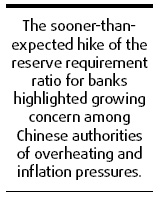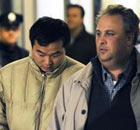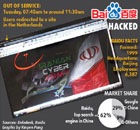Editorials
Warning to banks
(China Daily)
Updated: 2010-01-14 07:52
 |
Large Medium Small |
The sooner-than-expected hike of the reserve requirement ratio for banks highlighted growing concern among Chinese authorities of overheating and inflation pressures.
To the surprise of most who did not anticipate a major policy move before the Spring Festival this mid-February, the People's Bank of China announced the ratio's hike on Tuesday. The increase, to take into effect next Monday, is the first of its kind since the global financial crisis hit bottom in late 2008.
The move can be viewed as the beginning of China's efforts to absorb excess liquidity. But it is far from certain if Chinese authorities will end the era of cheap money anytime soon.

To help lift the national economy out of the global recession, Chinese banks approved more than 9 trillion yuan in new loans last year, more than doubling that in 2008.
Managing the consequences of such a credit binge has become a task that has grown more complex than ever for the central bank.
On the one hand, signs of slightly overheating and inflationary pressures have emerged that demand a response in policy. Tightening loans now could prevent the economy from becoming too overheated and reduce the need for even more aggressive tightening later.
On the other hand, both the recovery of the global economy and the rebound of the national economy are not yet on solid footing to ensure that an early exit from the current credit policy will work. This rationale is why Chinese authorities have vowed to maintain a moderately loose monetary policy to maintain a sound economic growth this year.
The latest hike of the reserve requirement ratio sent a warning to Chinese banks that had reportedly made loans totaling almost 600 billion yuan in the first week of January. That rate of credit growth is simply not sustainable and must be stopped as early as possible.
Yet, the move may also not be as hawkish as it looks if it indeed mainly helps to absorb excess liquidity in the banking system resulted from rising foreign exchange reserves. The accelerated rebound in exports in the past months has further inflated China's foreign exchange reserves, which reached $2.3 trillion last September.
More moderate and targeted tightening measures will be needed in the coming months as signs of overheating and inflation become more evident. But it will definitely take several aggressive interest rate hikes to end the flood of cheap money.
(China Daily 01/14/2010 page8)













